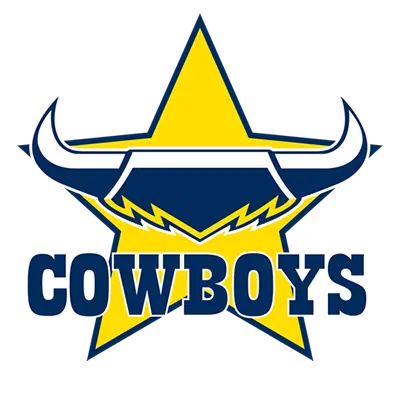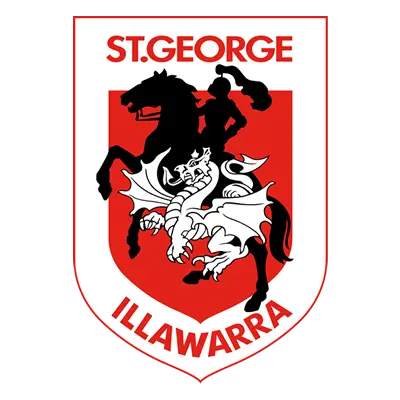A warning to the convicts and people of middle easter appearance
- Thread starter Matabele
- Start date
You are using an out of date browser. It may not display this or other websites correctly.
You should upgrade or use an alternative browser.
You should upgrade or use an alternative browser.
G
Guest
Guest
Could be worse. Could be Lithgow.
Lithgow/Lakemba - not much difference.
G
Guest
Guest
Tabouli, hommos and filafel.
It was 30 car loads and one bus of ME types comming up from melbourne that I heard on the radio this morning.
Lets hope the Dubbo boys have been practising their baton swinging and head butting this week because I have a feeling they are going to use their skills a bit in the next couple of days.
In one way I am hoping that the middle eastern thugs start a riot this weekend because there are finally enough cops to give it to them them and hopefully put them in jail for a long time so that we can finally get rid of the sum from our streets and get things back to normal.
Hopefully a few melbourne cops are following the convoy up because they have the right idea about troublemakers - they just shoot them.
It was 30 car loads and one bus of ME types comming up from melbourne that I heard on the radio this morning.
Lets hope the Dubbo boys have been practising their baton swinging and head butting this week because I have a feeling they are going to use their skills a bit in the next couple of days.
In one way I am hoping that the middle eastern thugs start a riot this weekend because there are finally enough cops to give it to them them and hopefully put them in jail for a long time so that we can finally get rid of the sum from our streets and get things back to normal.
Hopefully a few melbourne cops are following the convoy up because they have the right idea about troublemakers - they just shoot them.
Arabs30 bus loads of what?
Spuds Bodyguard
Reserve Grader
Hopefully bringing some porn and fireworks.
Utility Player
Bencher
[quote author=tookey]
It was 30 car loads and one bus of ME types comming up from melbourne that I heard on the radio this morning.
Well as long as there not MSE types :lol:
It was 30 car loads and one bus of ME types comming up from melbourne that I heard on the radio this morning.
Well as long as there not MSE types :lol:
Matabele
Journey Man
There were quite a few bikie gangs heading east through Dubbo yesterday ................I heard on the radio that there 30 bus loads of Arabs on there way up to Sydney from Canberra!
Spuds Bodyguard
Reserve Grader
Can you imaging the "fully shick" buses. Mag wheels, blow-off valves and subwoofers.
G
Guest
Guest
Can you imaging the \"fully shick\" buses. Mag wheels, blow-off valves and subwoofers.
Don't foget the fluffy dice hanging off the rear vision miror and the dog with the bobbing head in the back.
G
Guest
Guest
Anyone going to the beach today?
Manly beach was fine. Apparantly only 30 people on Cronulla beach though.
G
Guest
Guest
A weekend of high profile policing for the media which acheived very little.
This article sums up things perfectly.
Little punishment for the real thugs
Politicians and the legal establishment have weakened the police force, writes Paul Sheehan.
Deserted beaches. Random searches. Police lockdowns. This past weekend personified the law and order gulf in NSW. Too much law. Not enough order.
Politics in NSW has changed. The public is going to become restive and resentful when it begins to understand the full magnitude of the limitations and fears and failures imposed on the police by our legal and political establishment. Hugely expensive public relations exercises, such as the weekend's belated show of force against soft targets, are not going to substitute for substance.
There is a brazen, racist, criminal subculture in this city and the public want it cauterised. Not talked to death. Not swept under the carpet again. Cauterised.
One week ago, Sydney had the appalling spectre of a large group of street brawlers assembling in Punchbowl, forming a 40-car convoy, proceeding like a military flying squad, hazard lights blazing as a display of force and confidence, and causing havoc on the streets in the eastern suburbs, with the police nowhere to be found. Responding to any threat from the police with both numbers and belligerence has been standard and effective operating procedure in this subculture for years.
Unless and until the Police Commissioner, Ken Moroney, starts announcing the arrests of some of those involved in last Monday's convoy of intimidation, his main contribution to the debate will continue to be rhetorical flatulence.
Among police whistleblowers, there is a conviction that police intelligence, initiative and effectiveness have been dangerously compromised by the legal profession, where the defence bar enjoys disproportionate powers which have undermined due process rather than enhanced it.
A former detective, Michael Kennedy, told me: "There was a huge struggle by the legal establishment to undermine the police. We had a royal commission that fed the public a lot of nonsense. The Wood royal commission [1994-98] absolutely interfered with policing in this state."
Another former detective, Tim Priest, who correctly predicted this recent civil disorder two years ago, added: "In 1996, with the arrival of Peter Ryan [as police commissioner] and the continued public humiliation of the NSW Police through the Wood royal commission, a chain of events began that have affected the police so deeply and so completely that, as far as ensuring public safety, I fear it will take at least a generation to regain lost ground."
Another former senior detective, who did not want to be named, said: "The young police know that if they ever go in hard, they will get no back-up from the courts, or the police hierarchy. They may be charged with assault and accused of being racist. So we have a static, scared, reactive police force that is driven by statistics, not arrests. That's why you're starting to see vigilante-type thinking."
Senator Bill Heffernan, never afraid to make outrageous statements which happen to accord with widespread public sentiment, told me: "The NSW Police has just developed into a pansy operation since politicians took away the kick-arse provisions in the law ... The Wood royal commission was a farce. There ought to be a royal commission into the royal commission."
What all these hardnuts say is that the shock and shame over the behaviour of a couple of hundred idiots at Cronulla has overshadowed why thousands of people bothered to go to Cronulla to protest in the first place. A protest of this magnitude is a serious indicator of social unease.
"The reason why thousands of people turned up was because there has been aggressive behaviour on the beach and at Gunnamatta Park for years," the state MP for Cronulla, Malcolm Kerr, said. "I organised a rally about this same issue four years ago. We've been complaining about a lack of police numbers, a lack of police presence, and a lack of police response for years."
At this rally in 2001, the former assistant police commissioner Geoff Schuberg said Cronulla had lost its police station, its area commander, and its police numbers had dropped from 50 to 29 while response times drifted out to two hours. And all this was going on while a vicious undertow was growing unchecked at Cronulla.
As one 17-year-old told The Sunday Telegraph, "People are getting rolled, mugged and bashed all the time, and its always 20 of them to one of us." "Them" being, by implication, Lebanese males. Similar comments to the media have come all during the week, especially from the prime target of harassment on the beach, young women, who say aggression and sexual innuendo from young Lebanese has been routine for years. That is the source of all the anger.
One of the most angry, and a key hysteric on Cronulla Beach last Sunday, was Glen "Steely" Steele. Last week, he made a public apology to the Lebanese community for his bare-chested ranting at the crowd and into the TV cameras: "I am deeply embarrassed and ashamed, especially for my family, in the way I let my behaviour deteriorate. Unfortunately alcohol played a major part in my behaviour."
Yes, alcohol was a key element, but what was the driving element for the hundreds of males who meted out revenge, damage and intimidation on Monday and Tuesday? Don't expect any apologies from this quarter. Expect more intimidation. On Friday, Moroney warned: "Our latest intelligence tells us that large numbers of people are planning to go to these areas on Sunday to cause riotous behaviour."
How many people have been arrested who weren't served up to the police courtesy of TV footage? So far, it's been the soft targets, not the hard men. As usual.
This article sums up things perfectly.
Little punishment for the real thugs
Politicians and the legal establishment have weakened the police force, writes Paul Sheehan.
Deserted beaches. Random searches. Police lockdowns. This past weekend personified the law and order gulf in NSW. Too much law. Not enough order.
Politics in NSW has changed. The public is going to become restive and resentful when it begins to understand the full magnitude of the limitations and fears and failures imposed on the police by our legal and political establishment. Hugely expensive public relations exercises, such as the weekend's belated show of force against soft targets, are not going to substitute for substance.
There is a brazen, racist, criminal subculture in this city and the public want it cauterised. Not talked to death. Not swept under the carpet again. Cauterised.
One week ago, Sydney had the appalling spectre of a large group of street brawlers assembling in Punchbowl, forming a 40-car convoy, proceeding like a military flying squad, hazard lights blazing as a display of force and confidence, and causing havoc on the streets in the eastern suburbs, with the police nowhere to be found. Responding to any threat from the police with both numbers and belligerence has been standard and effective operating procedure in this subculture for years.
Unless and until the Police Commissioner, Ken Moroney, starts announcing the arrests of some of those involved in last Monday's convoy of intimidation, his main contribution to the debate will continue to be rhetorical flatulence.
Among police whistleblowers, there is a conviction that police intelligence, initiative and effectiveness have been dangerously compromised by the legal profession, where the defence bar enjoys disproportionate powers which have undermined due process rather than enhanced it.
A former detective, Michael Kennedy, told me: "There was a huge struggle by the legal establishment to undermine the police. We had a royal commission that fed the public a lot of nonsense. The Wood royal commission [1994-98] absolutely interfered with policing in this state."
Another former detective, Tim Priest, who correctly predicted this recent civil disorder two years ago, added: "In 1996, with the arrival of Peter Ryan [as police commissioner] and the continued public humiliation of the NSW Police through the Wood royal commission, a chain of events began that have affected the police so deeply and so completely that, as far as ensuring public safety, I fear it will take at least a generation to regain lost ground."
Another former senior detective, who did not want to be named, said: "The young police know that if they ever go in hard, they will get no back-up from the courts, or the police hierarchy. They may be charged with assault and accused of being racist. So we have a static, scared, reactive police force that is driven by statistics, not arrests. That's why you're starting to see vigilante-type thinking."
Senator Bill Heffernan, never afraid to make outrageous statements which happen to accord with widespread public sentiment, told me: "The NSW Police has just developed into a pansy operation since politicians took away the kick-arse provisions in the law ... The Wood royal commission was a farce. There ought to be a royal commission into the royal commission."
What all these hardnuts say is that the shock and shame over the behaviour of a couple of hundred idiots at Cronulla has overshadowed why thousands of people bothered to go to Cronulla to protest in the first place. A protest of this magnitude is a serious indicator of social unease.
"The reason why thousands of people turned up was because there has been aggressive behaviour on the beach and at Gunnamatta Park for years," the state MP for Cronulla, Malcolm Kerr, said. "I organised a rally about this same issue four years ago. We've been complaining about a lack of police numbers, a lack of police presence, and a lack of police response for years."
At this rally in 2001, the former assistant police commissioner Geoff Schuberg said Cronulla had lost its police station, its area commander, and its police numbers had dropped from 50 to 29 while response times drifted out to two hours. And all this was going on while a vicious undertow was growing unchecked at Cronulla.
As one 17-year-old told The Sunday Telegraph, "People are getting rolled, mugged and bashed all the time, and its always 20 of them to one of us." "Them" being, by implication, Lebanese males. Similar comments to the media have come all during the week, especially from the prime target of harassment on the beach, young women, who say aggression and sexual innuendo from young Lebanese has been routine for years. That is the source of all the anger.
One of the most angry, and a key hysteric on Cronulla Beach last Sunday, was Glen "Steely" Steele. Last week, he made a public apology to the Lebanese community for his bare-chested ranting at the crowd and into the TV cameras: "I am deeply embarrassed and ashamed, especially for my family, in the way I let my behaviour deteriorate. Unfortunately alcohol played a major part in my behaviour."
Yes, alcohol was a key element, but what was the driving element for the hundreds of males who meted out revenge, damage and intimidation on Monday and Tuesday? Don't expect any apologies from this quarter. Expect more intimidation. On Friday, Moroney warned: "Our latest intelligence tells us that large numbers of people are planning to go to these areas on Sunday to cause riotous behaviour."
How many people have been arrested who weren't served up to the police courtesy of TV footage? So far, it's been the soft targets, not the hard men. As usual.
G
Guest
Guest
The Dubbo cops would have been dissapointed.
Not much to do but eat Krispy cremes on the weekend.
Not much to do but eat Krispy cremes on the weekend.
Ryan
Journey Man
Your all westies. It was westies travelling to the beach to cause the trouble, and when they were kept out, we were sweet. It has nothing to do with race. It's all about Ug Boots, flannies & tight jeans with shirts tucked into them.
HeHeHe.
They should have a toll at the Spit Bridge, Mona vale Road & Warringah Road to charge you all !!!
LooL
HeHeHe.
They should have a toll at the Spit Bridge, Mona vale Road & Warringah Road to charge you all !!!
LooL
Users who are viewing this thread
Total: 1 (members: 0, guests: 1)
| Team | P | W | L | PD | Pts |
|---|---|---|---|---|---|

|
24 | 19 | 5 | 148 | 44 |

|
24 | 17 | 7 | 212 | 40 |

|
24 | 16 | 8 | 120 | 38 |

|
24 | 15 | 9 | 172 | 36 |

|
24 | 15 | 9 | 109 | 36 |

|
24 | 14 | 10 | 21 | 34 |

|
24 | 13 | 10 | 107 | 33 |

|
24 | 13 | 11 | 132 | 32 |

|
24 | 12 | 12 | 125 | 30 |

|
24 | 12 | 12 | 21 | 30 |

|
24 | 10 | 14 | -76 | 26 |

|
24 | 9 | 14 | -146 | 25 |

|
24 | 9 | 15 | -135 | 24 |

|
24 | 9 | 15 | -181 | 24 |

|
24 | 8 | 16 | -130 | 22 |

|
24 | 6 | 18 | -199 | 18 |

|
24 | 6 | 18 | -300 | 18 |
Online statistics
- Members online
- 26
- Guests online
- 1,897
- Total visitors
- 1,923
Totals may include hidden visitors.
